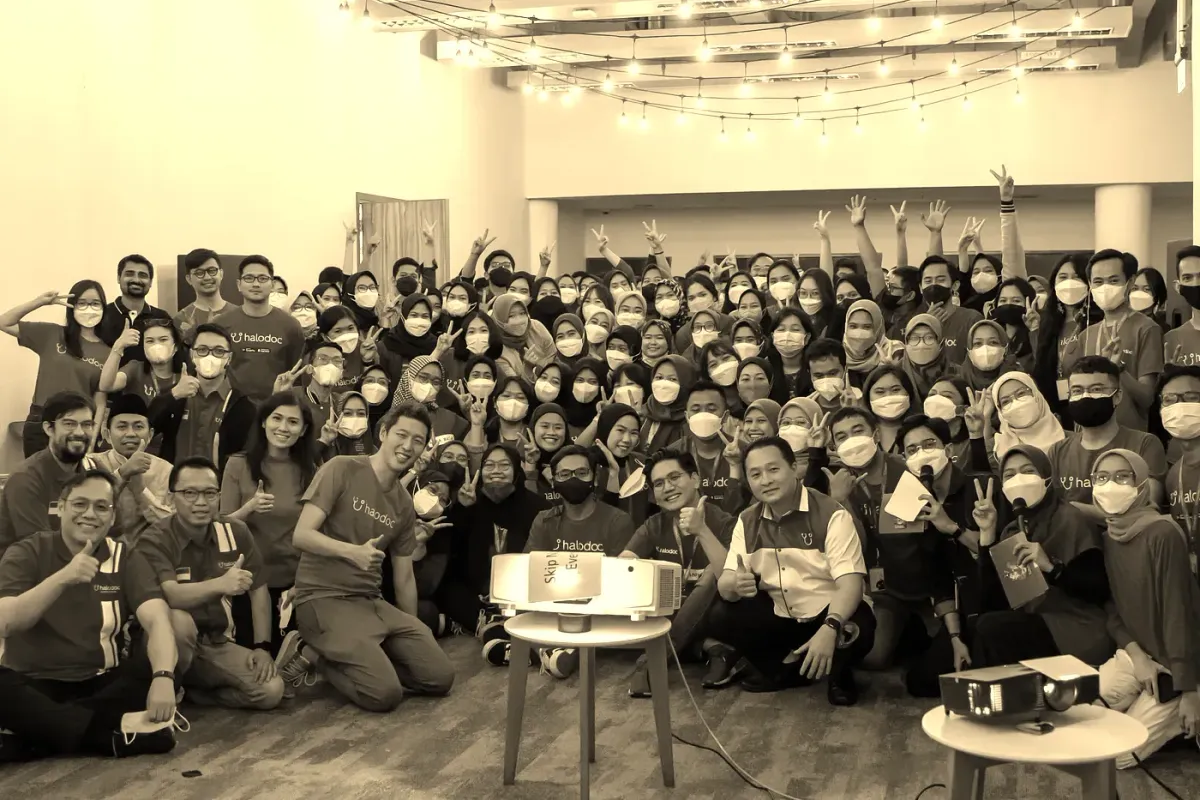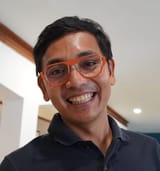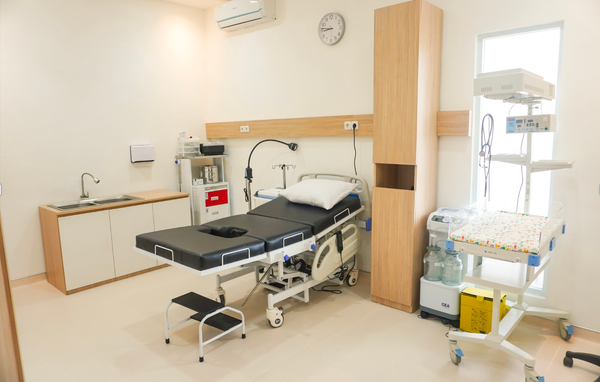Six years of making healthcare accessible in Indonesia

Last night during Halodoc’s sixth-anniversary event, Jonathan, the CEO, asked me to share my own journey as a mentor, advisor, and now board member of Halodoc. The theme was how the halodoc stepped up multiple times to save lives during the pandemic.
A Healthtech business plan that failed to launch
A decade ago, when I was a graduate student, I invited a group of classmates, including a Medical Student and a Biotech Ph.D., to spend their year end holidays in Indonesia. We met with the Ministry of health and visited villages to understand our country’s health issues. We learned that Indonesia had only 2.7 doctors and 12 hospital beds per 10,000 people, which was low for a country of our GDP per capita. Furthermore, the facilities were concentrated in Java. The only way to improve access was through technology.
Upon returning to campus, we submitted two ideas to the school’s business plan competition. One was a startup wanting to provide access to healthcare. Another would provide access to financial services. Both made it to the semi-finals, and the fintech plan won.
I decided to pursue the fintech idea full time. This was beginning of Mapan, which we merged with two other payment companies leading me to become the CEO of Gopay, Gojek’s fintech arm. We started with a simple goal: How do we replace the EDC payment machines with paper-based QRs so that more merchants can access digital payments?
At the time, e-money acceptance via QR stickers was not allowed. But our stubbornness paid off, and four years later more than sixteen million merchants accept payments via QR stickers.
A Chance Encounter
Early in my startup journey, I ran into Jonathan. We were classmates in junior high school. He said he wanted to build a health tech startup and knew I had been in tech for a while. He asked if I could help.
What began as an informal mentoring relationship became a formal partnership when Halodoc’s medicine delivery became one of Gopay’s most reliable use cases. We worked together closely to grow each other’s products.
Thus after leaving Gopay I took the offer to join the Halodoc Board of Commissioners. My original intention was to take a full sabbatical, occasionally advising the companies which I was on the board of: Halodoc, eFishery, and Kitabisa.
But during the pandemic was when Halodoc’s team stepped up their game.
The Vaccination Drive Through Centers

On that Friday when we had the call to discuss the press release for the announcement of my appointment , someone floated the idea to transform Halodoc’s drive-through testing centers into vaccine centers. This was particularly relevant for me because my mom takes care of my father who is a stroke survivor. I was worried that the crowds queuing for the vaccine would increase their risk of infection.
Yet we had no idea how to get the vaccines, permission and medical staff needed to deploy such an operation. Out of the blue, the Ministry called us that very Monday, and Hermina, a local hospital agreed to provide nurses. By Wednesday Halodoc was running Indonesia’s first drive through vaccination center.
The next day, I drove my Mom there. The combination of my own feeling of relief and the big smile on her face after she received her dose flooded me with emotion.
Today we closed that first Vaccination Center. In the last year Halodoc rolled out 434 centers delivering 728,000 doses of vaccines.
The Oxygen for Indonesia Movement

In June, deaths from Covid were at 40,000 per day. Our WhatsApp groups were filled with deaths of our friends parents, spouses, and siblings.
One Sunday afternoon, together with sixty other startups, we decided to set up Oxygen for Indonesia. Our goal was to build the fundraising, procurement, delivery, and training capabilities to give hospitals that badly needed oxygen concentrators and plants.
Every night we would read reports of the hundreds of hospitals which were running out of oxygen. If we weren’t fast enough, this meant patients waiting would not make it. Many of the volunteers had trouble sleeping.
But being in Halodoc meant that we were in a position to really help. Many folks in Halodocs took key responsibilities. David, which heads sales cold-called corporate partners to donate oxygen. Michael, Halodoc’s lawyer took the role of procurement and coordination of delivery to the hospitals. Furi, Dr Aldo, and the Halodoc in-house Doctors trained the hospitals on how to use the oxygen equipment.
We raised 7 million dollars from more than twenty five thousand people to deliver 2500 concentrators and build 42 oxygen PSA plants in remote areas. In less than a year, we had increased Indonesia’s total number of Oxygen PSA plants from 61 to 103.
The Road Ahead
The vaccine centers and oxygen movements were only one of many initiatives that the team built during the pandemic. There were the covid testing centers, the home isolation service, and much more.
There are not many places where your designs, code, and work are so directly correlated to saving another human being. This sense of purpose is something I witnessed in teams who are working day in and day out without complaint to help others.
The pattern of stepping up to take opportunities, many of which came without warning, is something we should all be proud of.
Let’s take this time to celebrate, reflect and prepare for the long road. Twenty million monthly users is a good start, but we have a long road ahead to simplify healthcare for all Indonesians.





